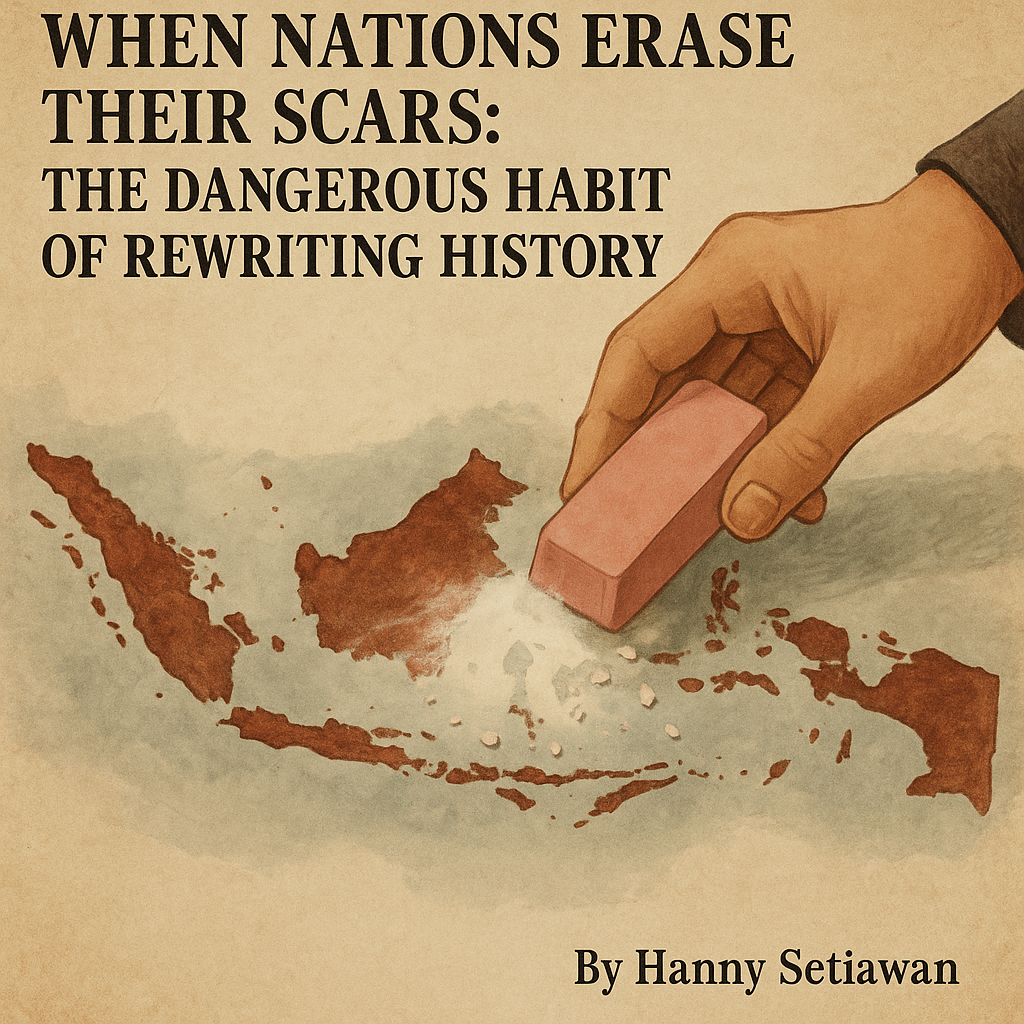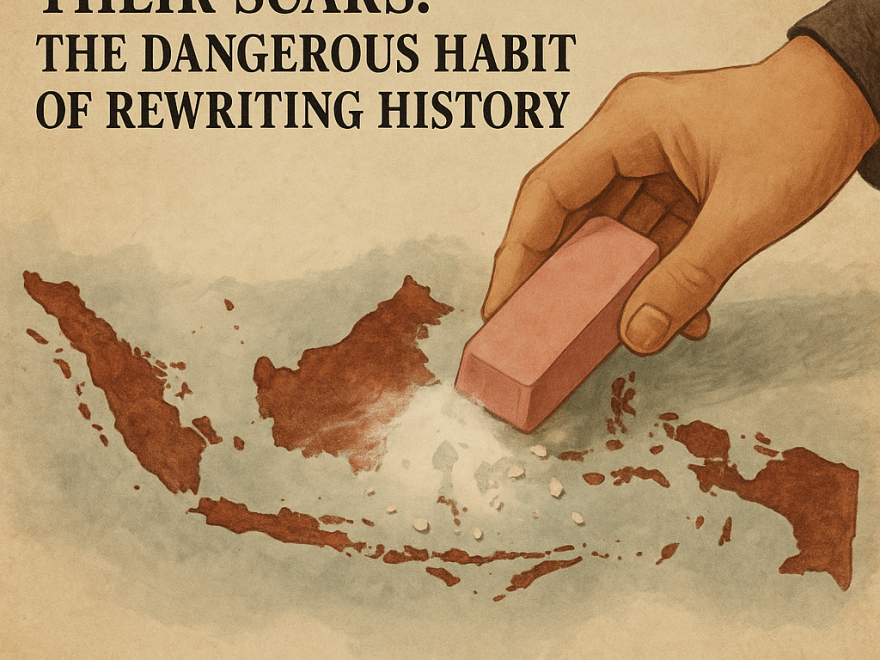You’d think that in a world where facts are just a click away, the urge to rewrite history would have faded. But even today, we’re watching history being trimmed and tailored—not just in authoritarian regimes, but also in democratic ones navigating power shifts.
In Indonesia, the recent shift toward revising the national historical narrative—purportedly to “move forward” and “unify the nation”—has sparked both curiosity and concern. Under the current administration, efforts to “update” the story of Indonesia’s past are being framed as paths to national healing. But many fear the opposite: that this is a preemptive maneuver to erase or soften contentious chapters from the nation’s complex history.
Cultural Minister Fadli Zon, a prominent political figure and loyal advocate of the current government’s vision, has emerged as a key architect of these historical revisions. Through his ministry, Zon is pushing a broader political agenda—one that values unity more than facing uncomfortable truths. The official narrative of the 1965 anti-communist purge, the May 1998 riots, the Timor-Leste atrocities—these are not just historical footnotes, but raw, unresolved traumas. Revisiting them critically would mean confronting painful realities, including the complicity of political and military elites who continue to wield influence today.
Yet it seems the nation might rather bury these shadows—especially under leaders like Zon, whose loyalty to power might matter more than loyalty to the truth.
The temptation to “clean up” history is hardly new. Roman emperors famously erased the names and likenesses of disgraced predecessors. In China, each new dynasty redefined the morality of its forerunners to justify the Mandate of Heaven. The Soviet Union rewrote encyclopedias and airbrushed enemies out of photographs. Now, in the digital age, governments use everything from school textbooks to algorithms and media campaigns to shape what people remember—and what they forget.
Indonesia is not immune. During the New Order, Suharto’s regime institutionalized a sanitized, one-dimensional account of national history. Generations were taught that dissent equals subversion, and that the military’s role in preserving the republic was sacrosanct. Those who questioned the state’s narrative were labeled radicals—or worse, traitors.
Today’s revisionism, championed by figures like Fadli Zon and wrapped in the language of modernization and unity, risks repeating the same authoritarian impulse.
But this time, the tools are subtler: textbook updates, national museums with curated omissions, and public messaging that calls for “forgiving the past” without ever really confronting it.The Cultural Ministry’s approach suggests a preference for narrative control over historical honesty.
Ironically, while Indonesia debates what to remember, the world remembers for us. Museums in the Netherlands, Germany, and even the United States house extensive archives on Indonesia’s colonial, military, and political history. Documents, photos, and testimonies that may never appear in our textbooks are freely available abroad. This creates a strange irony: the more we erase our past here, the more we let others tell our story for us.
And this isn’t just about national image. It’s about integrity, healing, and future generations.
A nation that buries its pain never really heals. The scar remains, invisible but festering. What makes a civilization great is not the absence of wounds, but the courage to treat them.
Theologies of reconciliation point the same way: in Christian doctrine, it is truth that sets us free (John 8:32). That truth—often painful—is the only pathway to genuine peace, not cosmetic harmony. Without it, peace is fragile, justice is delayed, and wounds are passed down in silence.
To update history is one thing; to edit out injustice is another. When the state controls memory through the hands of loyal ministers and political appointees, it doesn’t just control the past—it reshapes the future.
Indonesia stands at a critical juncture. We can choose to become a mature nation that dares to remember—and repair. Or we can go the route of many empires past, who mistook silence for unity, and eventually collapsed under the weight of denied truth.
Either way, history will not be fooled. And the world is still watching.

Coretan Lain:
- Globalism vs Nationalism : – A New Worldwide Ideological Warfare
- The Slave of Money, #BlackLivesMatter Is a Lie?
- Bagaimana Perasaan Ahok Hari Ini?
- Sekularisasi Amerika
- Tercorengnya Dua Anak Reformasi : KPK & MK
